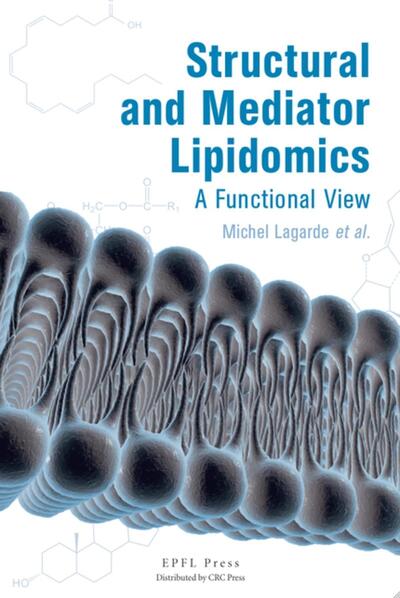Nous utilisons des cookies pour améliorer votre expérience. Pour nous conformer à la nouvelle directive sur la vie privée, nous devons demander votre consentement à l’utilisation de ces cookies. En savoir plus.
Structural and lediator lipidomics
EAN : 9782940222926
Paru le : 15 mars 2025
-
 Livraison gratuite
Livraison gratuite
en France sans minimum
de commande -
 Manquants maintenus
Manquants maintenus
en commande
automatiquement -
 Un interlocuteur
Un interlocuteur
unique pour toutes
vos commandes -
 Toutes les licences
Toutes les licences
numériques du marché
au tarif éditeur -
 Assistance téléphonique
Assistance téléphonique
personalisée sur le
numérique -
 Service client
Service client
Du Lundi au vendredi
de 9h à 18h
- EAN13 : 9782940222926
- Réf. éditeur : 613354
- Collection : EPFL PRESS
- Editeur : Pu Polytechnique
- Date Parution : 15 mars 2025
- Disponibilite : Epuisé
- Barème de remise : NS
- Nombre de pages : 100
- Format : H:245 mm L:165 mm E:17 mm
- Poids : 486gr
- Interdit de retour : Retour interdit
-
Résumé :
Lipidomics forms part of the field of metabolomics, which in turn follows on from genomics, transcriptomics, and proteomics, in a top-down manner. It is the study of hydrophobic molecules called lipids; however, lipid molecular species are so numerous that investigators tend to subdivide global lipidomics into targeted lipidomic approaches.
This book focuses on structural and mediator lipidomics, with a particular emphasis on their functional aspects. This includes lipids deserving of special interest for their structures (especially as parts of cell membranes or plasma lipoprotein particles) and lipids known for their biological activities, which mediate the action of cell agonists (for example, hormones, growth factors, etc.). The oxygenated metabolites of the major functional w6 and w3 polyunsaturated fatty acids in mammals, in particular arachidonic and docosahexaenoic acids, are presented, with special attention paid to their structure-function relationships. These metabolites are very active, and their biological relevance was recognized early on with a Nobel Prize in Physiology and Medicine in 1982. Finally, general principles for the high performance analysis and characterization of lipid species are also presented.
The book has been written for undergraduate students and scientists interested in the field of lipids. Clinicians will also be able to find useful information, due to the numerous references to pathophysiology.
















